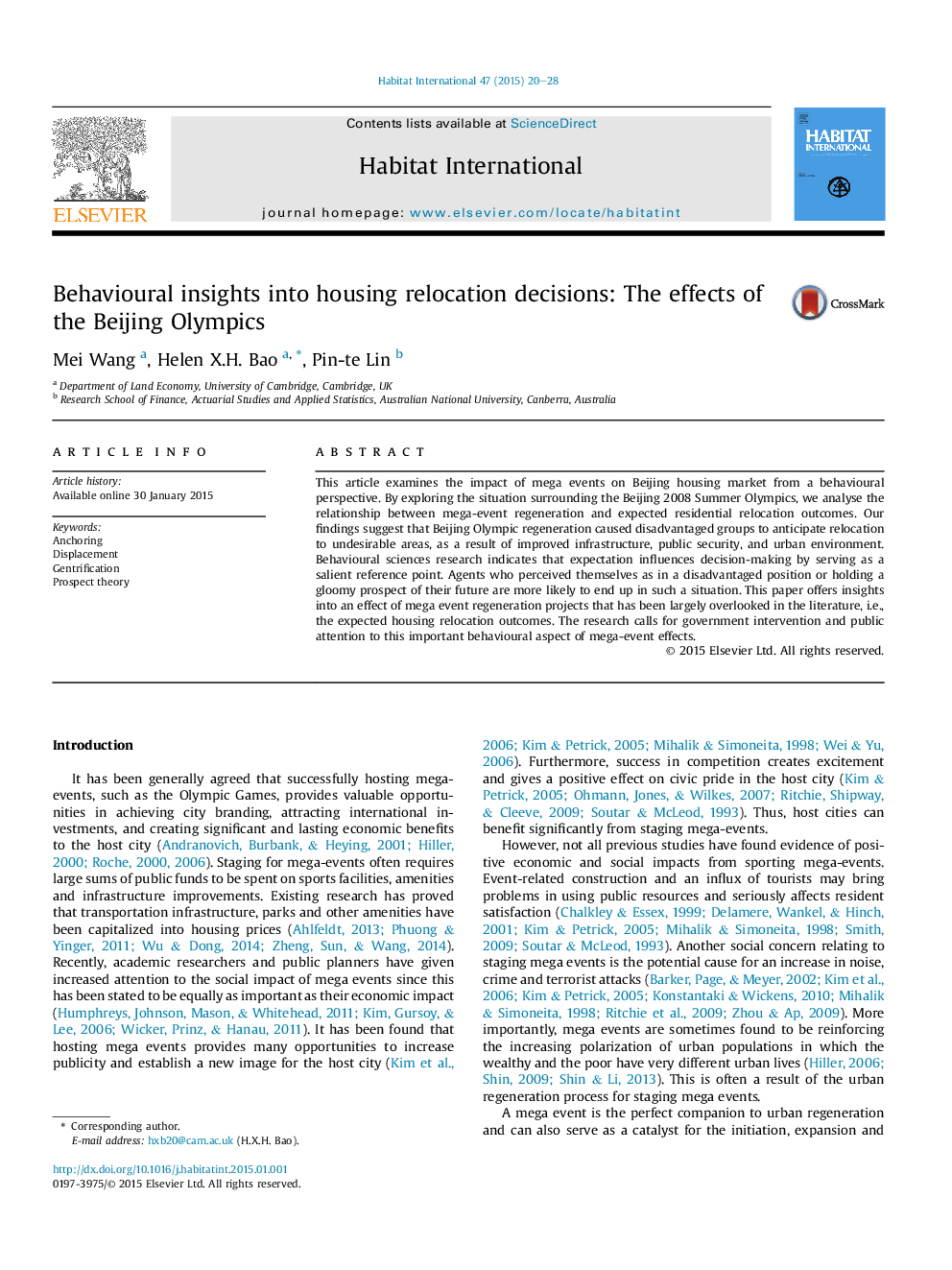| Article ID | Journal | Published Year | Pages | File Type |
|---|---|---|---|---|
| 1047877 | Habitat International | 2015 | 9 Pages |
•This paper examines the impact of the Beijing Olympics on housing relocation decisions from a behavioural perspective.•It focuses on the relationship between mega-event regeneration and expected residential relocation outcomes.•Our survey results show that Beijing Olympic regeneration caused disadvantaged groups to anticipate relocation to undesirable areas.•Government intervention and public attention to this important behavioural aspect of mega-event regeneration effects is urged.
This article examines the impact of mega events on Beijing housing market from a behavioural perspective. By exploring the situation surrounding the Beijing 2008 Summer Olympics, we analyse the relationship between mega-event regeneration and expected residential relocation outcomes. Our findings suggest that Beijing Olympic regeneration caused disadvantaged groups to anticipate relocation to undesirable areas, as a result of improved infrastructure, public security, and urban environment. Behavioural sciences research indicates that expectation influences decision-making by serving as a salient reference point. Agents who perceived themselves as in a disadvantaged position or holding a gloomy prospect of their future are more likely to end up in such a situation. This paper offers insights into an effect of mega event regeneration projects that has been largely overlooked in the literature, i.e., the expected housing relocation outcomes. The research calls for government intervention and public attention to this important behavioural aspect of mega-event effects.
